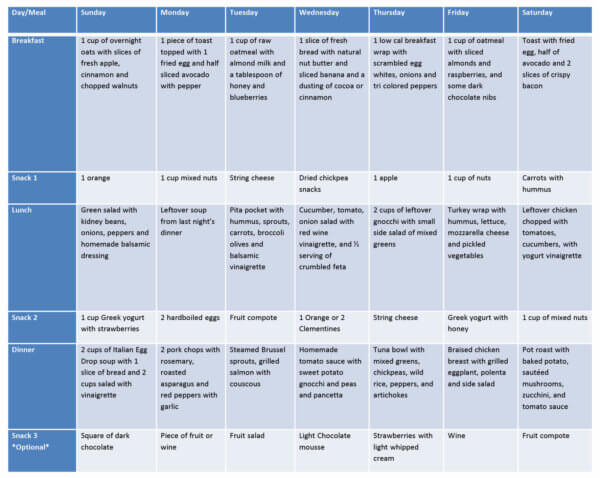Last month we delved into the basics of the Mediterranean diet and reasons why you should consider adapting a healthier lifestyle for 2017. This month we are going to touch on more practical ways to make healthy substitutions into every day meals in order to achieve your resolution goals. It’s no surprise that the Mediterranean lifestyle is among the most popular ways to eat since it helps with weight loss, anti-aging and helps battle cardiovascular disease. It’s not as restrictive as crash diets that are totally unattainable, and the foods that you’ll be cooking up are totally delicious!
Here are our tips on how to transition into the Mediterranean state of mind:
- Trade thick sauces and lots of sodium for the wonderful flavors of herbs. Herbs have no calories but plenty of flavor! Consider starting your own herb garden in a sunny window using small pots or even in your back yard so you can have them on hand and fresh. Chopped fresh sage can transform a basic pasta dish, and smoked paprika can add immense flavor to meats and stews.
- Eat fresh fruit instead of dried or jellies/jams. Any time a fruit is reduced, it means the water content is evaporated and sugar is left over. While fruit is healthy, it’s best eaten fresh! If you enjoy jelly on your toast in the morning, try slicing a strawberry instead of slathering on jam.
- Use olive oil instead of butter, canola oil, or lard. Olive oil can be eaten with raw and cooked dishes! If you’re eating a bowl of steamed veggies, opt for drizzling some olive oil on top over smothering them in butter. It’s better for your heart and waistline.
- Opt for non-creamy sauces. While it’s nice to indulge in creamy vodka sauce once in a while, keep your everyday tomato sauce homemade and light! Try a puttanesca sauce or a plain red sauce made from stewed tomatoes, basil and oregano.
- Eat more fish than red meat. While meat is high in protein, it’s also high in fat and calories. Try to incorporate fish at least twice a week. If you’re in the mood for burgers, make some delicious salmon patties with parsley and capers and throw them on the grill.
- Get creative with your condiments. Swap mayo for mashed avocado; replace ketchup with roasted tomatoes and red peppers. Condiments tend to have a lot of sodium, fat and calories.
- Enjoy wine instead of beer. Enjoy an anti-oxidant rich glass of wine with dinner a couple times a week instead of grabbing beers and wings every weekend. Wine contains resveratrol which can help lower cholesterol and prevent heart disease.
Easing into this new lifestyle doesn’t mean you need to overhaul your entire kitchen and purchase expensive ingredients to make extravagant or complicated meals. Reducing the amount of processed foods you eat will make an immediate impact on your health and weight. This doesn’t mean you can never eat pasta or bread again, but it does mean that you should be mindful of the foods you’re eating and eat high quality foods in reasonable portions.
We’ve put together a sample week menu plan to help you with recipe ideas and give you an idea of what a Mediterranean diet day looks like.
Download above Chart, Click Here
While adapting to the Mediterranean lifestyle, don’t deprive yourself! Remember to keep your portions sensible and your ingredients fresh. Ask one of our staff members to help you pick out the ripest produce and highest quality cuts of protein while shopping with us. Kick February into high gear with your health goals and be prepared for spring, which is just around the corner!

